
Mount Hagen: The Gateway to Papua New Guinea's Highlands
Mount Hagen, a lively city nestled in the Western Highlands of Papua New Guinea, offers a unique blend of traditional culture and modern experiences. This city is renowned for its annual cultural festival, the Mount Hagen Show, where tribes from all over the region gather to showcase their vibrant dances, music, and traditional dress. The festival is a visual feast and a rare chance to witness the rich cultural tapestry of the Highlands. Beyond the festival, Mount Hagen serves as a gateway to some of the most breathtaking natural landscapes in Papua New Guinea. The surrounding highlands are dotted with lush rainforests, pristine rivers, and towering mountains. Visitors can explore the famous Waghi Valley, known for its fertile lands and coffee plantations, or venture into the nearby forests for birdwatching and hiking. The region is also home to the Kuk Swamp, a UNESCO World Heritage site, which provides fascinating insights into early agricultural practices. While in Mount Hagen, tourists can immerse themselves in the local lifestyle by visiting bustling markets, where fresh produce, handmade crafts, and traditional artifacts are sold. The city also offers a range of dining options, from local eateries serving traditional dishes to more modern restaurants. For those interested in history, the J.K. McCarthy Museum offers a glimpse into the colonial past and the diverse cultures of the Highlands.
Local tips in Mount Hagen
- Visit during the Mount Hagen Show in August to experience the city's most vibrant cultural event.
- Hire a local guide for hikes and birdwatching trips to ensure safety and gain deeper insights into the area.
- Explore the local markets early in the morning when they are most lively and filled with fresh produce.
- Be respectful of local customs and always ask for permission before taking photographs of people.
- Try the locally grown coffee, which is considered some of the best in the world.
Mount Hagen: The Gateway to Papua New Guinea's Highlands
Mount Hagen, a lively city nestled in the Western Highlands of Papua New Guinea, offers a unique blend of traditional culture and modern experiences. This city is renowned for its annual cultural festival, the Mount Hagen Show, where tribes from all over the region gather to showcase their vibrant dances, music, and traditional dress. The festival is a visual feast and a rare chance to witness the rich cultural tapestry of the Highlands. Beyond the festival, Mount Hagen serves as a gateway to some of the most breathtaking natural landscapes in Papua New Guinea. The surrounding highlands are dotted with lush rainforests, pristine rivers, and towering mountains. Visitors can explore the famous Waghi Valley, known for its fertile lands and coffee plantations, or venture into the nearby forests for birdwatching and hiking. The region is also home to the Kuk Swamp, a UNESCO World Heritage site, which provides fascinating insights into early agricultural practices. While in Mount Hagen, tourists can immerse themselves in the local lifestyle by visiting bustling markets, where fresh produce, handmade crafts, and traditional artifacts are sold. The city also offers a range of dining options, from local eateries serving traditional dishes to more modern restaurants. For those interested in history, the J.K. McCarthy Museum offers a glimpse into the colonial past and the diverse cultures of the Highlands.
When is the best time to go to Mount Hagen?
Iconic landmarks you can’t miss
Mount Hagen Market
Discover the vibrant flavors and rich culture of Papua New Guinea at Mount Hagen Market, a must-visit fresh food market in the Highlands.
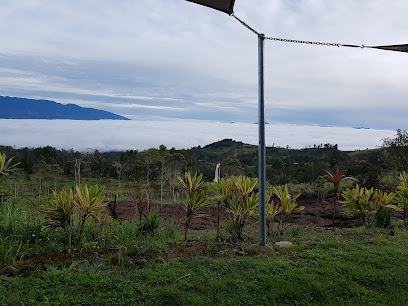
Tininga Supermarket, Dobel
Experience local life at Tininga Supermarket in Mount Hagen, where a variety of authentic Papua New Guinean products awaits your discovery.
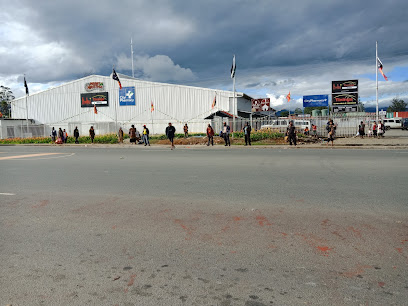
Mount Hagen (Kagamuga) Airport AYMH
Experience the gateway to Papua New Guinea's stunning Western Highlands at Mount Hagen Airport, where adventure begins amidst breathtaking views and rich culture.
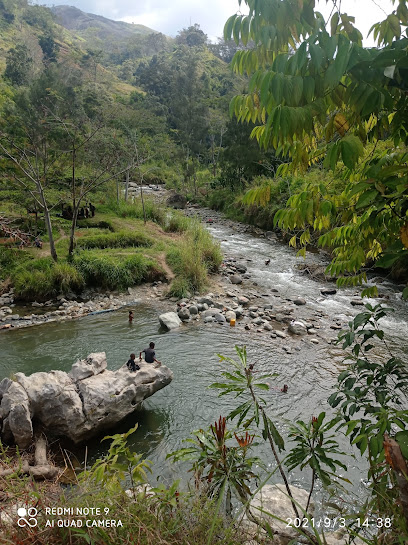
McRoyal Hotel
Discover the warmth of hospitality at McRoyal Hotel, your gateway to exploring the breathtaking landscapes and rich culture of Mount Hagen, Papua New Guinea.
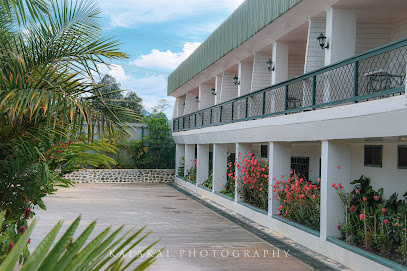
Rondon Ridge
Experience breathtaking views and luxury at Rondon Ridge, your serene escape in the heart of Papua New Guinea's Western Highlands.
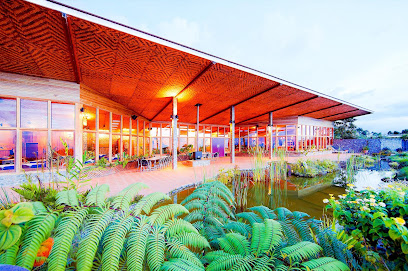
Hotel Kimininga
Discover the charm of Mount Hagen at Hotel Kimininga, where local culture meets comfort in the heart of Papua New Guinea's breathtaking Highlands.

Highlander Hotel & Apartments
Discover comfort and culture at Highlander Hotel & Apartments, your perfect base for exploring Mount Hagen's stunning Western Highlands.
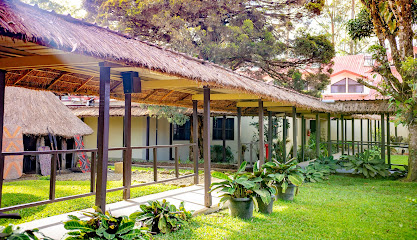
Able Home & Office PNG - Mount Hagen Branch
Explore the best of technology at Able Home & Office PNG in Mount Hagen, a hub for computer products and services in the Western Highlands.
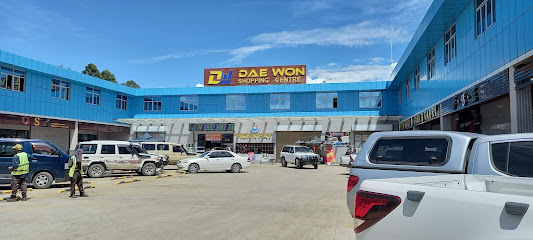
Mt Hagen Missionary Home
Experience the rich culture and serene landscapes of Papua New Guinea at Mt Hagen Missionary Home, your perfect base for adventure and relaxation.
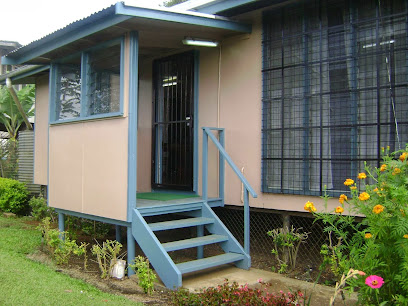
Amelia Earhart Memorial
Explore the Amelia Earhart Memorial in Lae, a serene tribute to aviation history and a celebration of pioneering spirit.
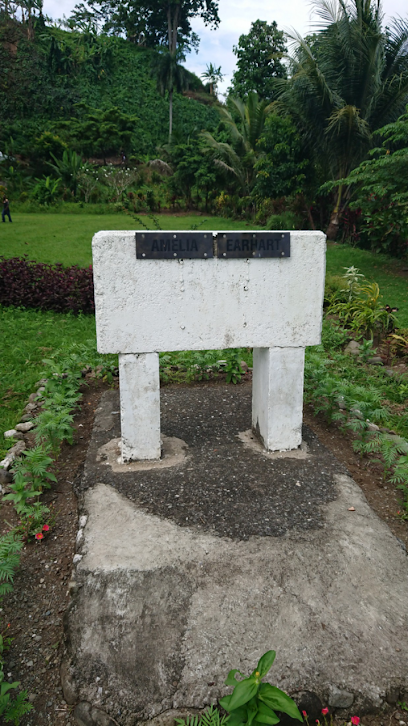
MAF Papua New Guinea
Explore the breathtaking Western Highlands of Papua New Guinea with MAF, connecting you to remote destinations and vibrant cultures.

Kumul Lodge
Discover the breathtaking beauty and rich culture of Papua New Guinea at Kumul Lodge, your serene retreat in the Highlands.

Mt Hagen Show Grounds
Discover the cultural heartbeat of Papua New Guinea at Mt Hagen Show Grounds, where vibrant traditions and stunning landscapes await every traveler.
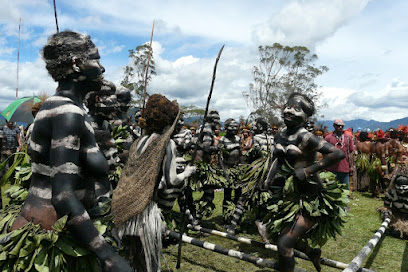
Magic Mountain Lodge
Discover the tranquil beauty and cultural richness of Magic Mountain Lodge in Mt Hagen, Papua New Guinea—an unforgettable retreat amidst stunning landscapes.
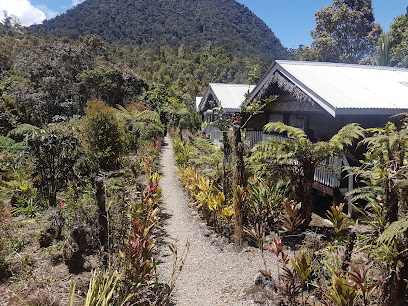
Kuk Swamp
Explore Kuk Swamp, a UNESCO World Heritage site in Papua New Guinea, where ancient agricultural practices meet stunning natural beauty.

Unmissable attractions to see
Queen's Park
Explore the lush landscapes and serene ambiance of Queen's Park in Mount Hagen, a perfect retreat for nature lovers and families seeking tranquility.
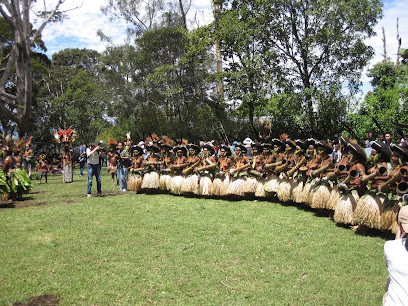
Kenneth Beach
Discover tranquility and natural beauty at Kenneth Beach, a serene park in Jiwaka Province, perfect for relaxation and outdoor adventures.
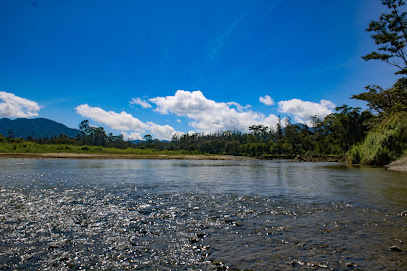
Ippe Waterfall
Experience the breathtaking beauty of Ippe Waterfall in Enga Province, a hidden gem perfect for nature lovers and adventurers alike.
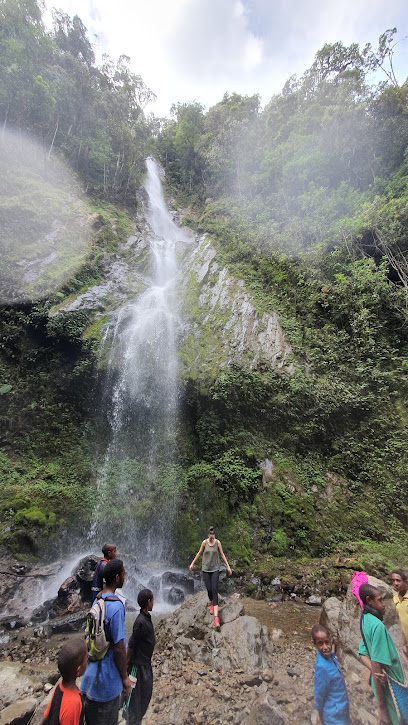
Kerelgue Bird Watches
Experience the natural beauty and diverse birdlife at Kerelgue Bird Watches in Papua New Guinea's Western Highlands, a true paradise for nature lovers.

Puri, Creek
Discover the tranquil beauty of Puri Creek in Jiwaka Province, where nature's serenity meets adventure and exploration.
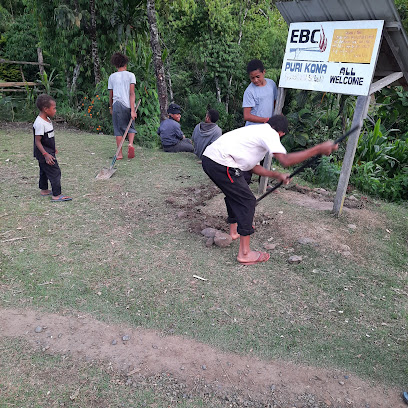
Kari Olgemb
Explore the breathtaking landscapes and rich culture at Kari Olgemb in Papua New Guinea's Southern Highlands, a true gem for adventure seekers.

Aundaka
Discover the breathtaking hiking trails and rich biodiversity of Aundaka in Mount Hagen, a hidden gem in Papua New Guinea's Western Highlands.
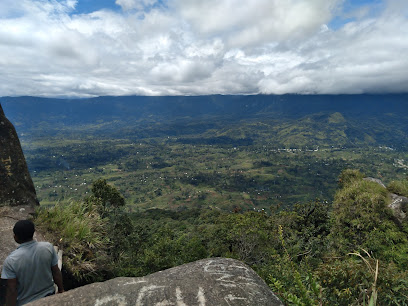
Akimi Falls
Experience the breathtaking beauty of Akimi Falls in Papua New Guinea's Southern Highlands, a hidden gem for nature lovers and adventurers alike.

Kuwang Pana Rapketa
Discover the lush landscapes and vibrant culture of Kuwang Pana Rapketa, a serene park in the heart of Mount Hagen, Papua New Guinea.
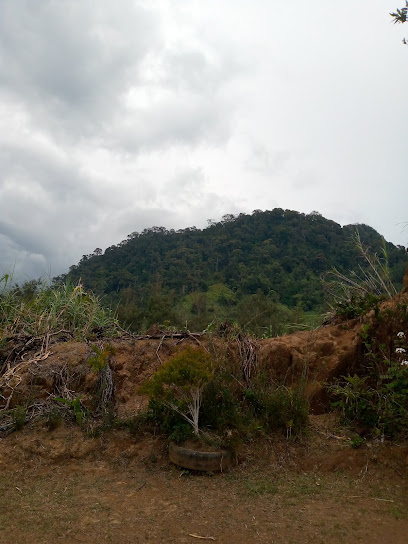
Baiyer River Sanctuary
Explore the untouched beauty of Baiyer River Sanctuary, a tranquil nature preserve in the Western Highlands of Papua New Guinea, ideal for nature lovers.
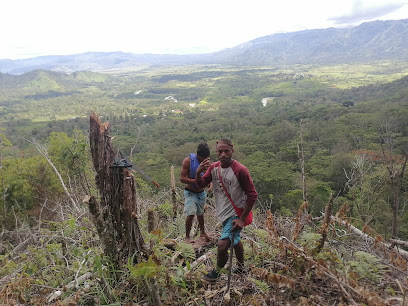
Mak Gorge Look Out Point
Explore the stunning vistas at Mak Gorge Look Out Point, a breathtaking tourist attraction in Papua New Guinea's Western Highlands Province.
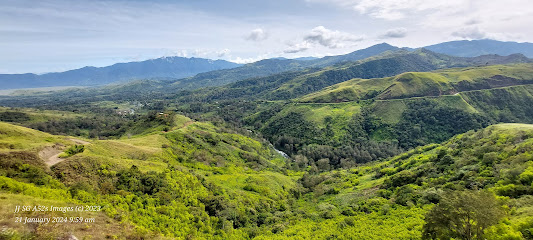
Konaitumbu/Popurul
Explore the natural beauty and cultural richness of Konaitumbu, a hidden gem in the Southern Highlands of Papua New Guinea.
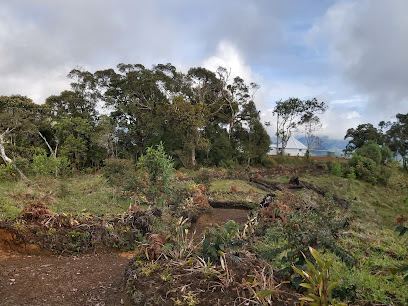
DupDawii village
Experience the authentic cultural heritage and stunning landscapes of DupDawii Village in Jiwaka Province, Papua New Guinea.
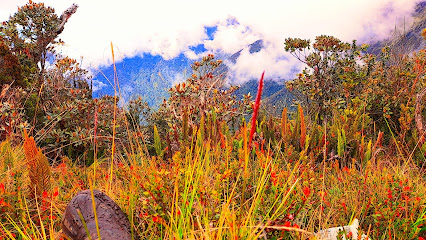
Tongo River
Explore the serene beauty of Tongo River in Papua New Guinea, where nature meets tranquility in a breathtaking rural setting.

Mile Bobo Nature Park
Explore the natural wonder of Mile Bobo Nature Park in Southern Highlands, where lush landscapes and diverse wildlife await every traveler.

Essential places to dine
Mount Hagen Market
Discover Mount Hagen Market: A vibrant fresh food market showcasing local produce and culture in Papua New Guinea's stunning Western Highlands.
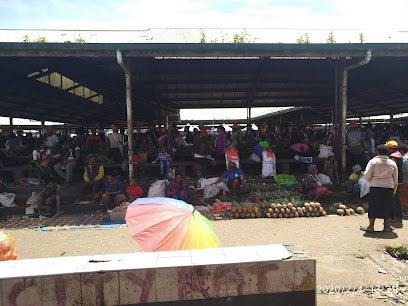
Rondon Ridge
Experience breathtaking views and exquisite dining at Rondon Ridge in Papua New Guinea's stunning Western Highlands.
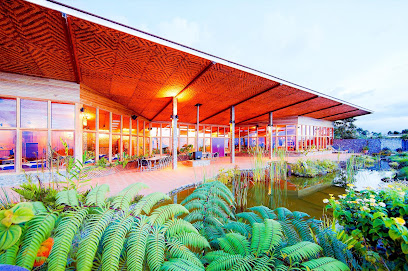
Hotel Kimininga
Discover comfort and local charm at Hotel Kimininga in the stunning Highlands of Papua New Guinea.

Highlander Hotel & Apartments
Discover comfort and culture at Highlander Hotel & Apartments in Mount Hagen – your perfect base for exploring Papua New Guinea's stunning Western Highlands.
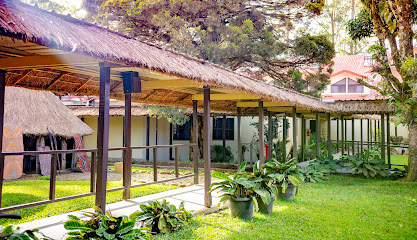
Kofi Kave
Discover Kofi Kave: Your go-to café in Mount Hagen for local flavors and an inviting atmosphere.
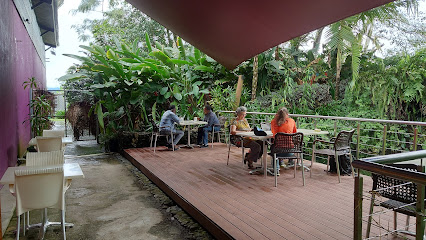
Hagen Plaza
Experience the rich flavors of Papua New Guinea at Hagen Plaza - where local ingredients meet culinary excellence in Mount Hagen.
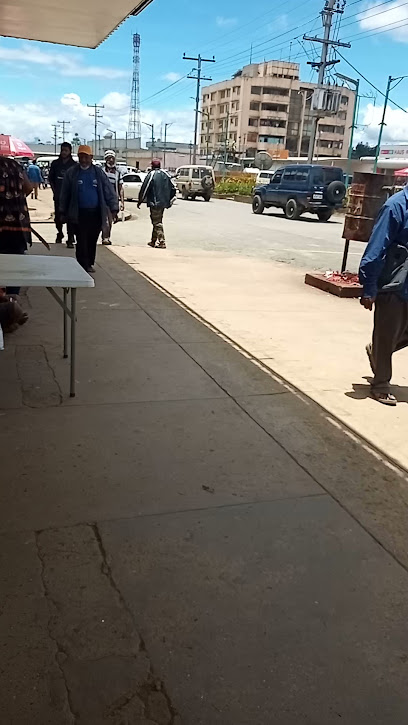
Chetty's Restaurant
Experience authentic Papua New Guinean cuisine at Chetty's Restaurant in Mount Hagen - a culinary delight not to be missed.
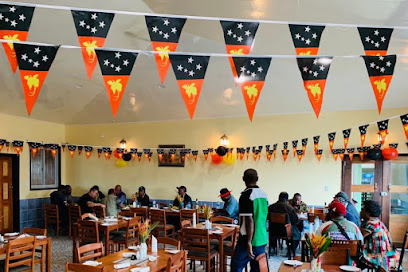
Shalom Mission Home
Discover the warmth and comfort of Shalom Mission Home in Mount Hagen – your perfect guest house retreat in Papua New Guinea's Highlands.
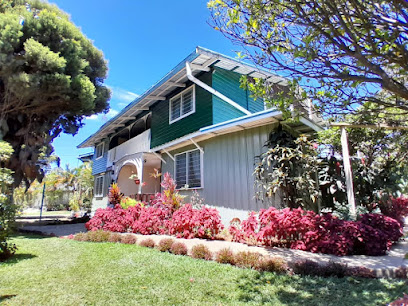
Kofi Kai Restaurant
Experience authentic Papua New Guinean cuisine at Kofi Kai Restaurant in Mount Hagen - perfect for families seeking delicious meals.
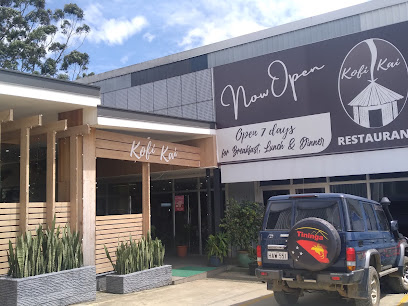
Signature Restaurant
Experience the unique flavors of Papua New Guinea at Signature Restaurant in Mount Hagen – where local ingredients meet culinary artistry.
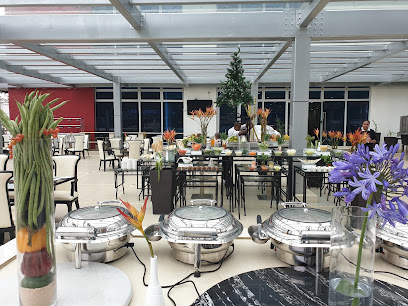
Big Rooster
Experience quick bites at Big Rooster in Mount Hagen - where fast food meets local flavor amidst stunning highland scenery.

Signature Epicure
Discover authentic Indian cuisine at Signature Epicure in Mount Hagen - a culinary experience that celebrates flavor and culture.
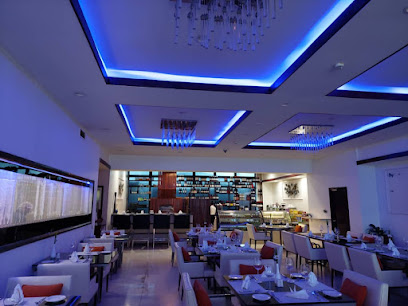
Highlands Agriculture College
Explore Highlands Agriculture College: A unique blend of agricultural education and breathtaking landscapes in Jiwaka Province.
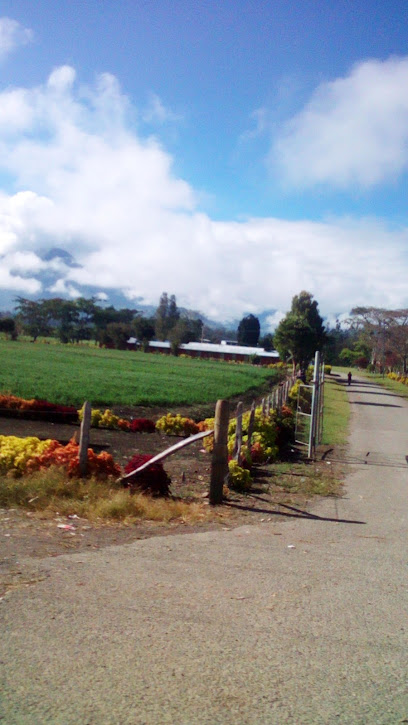
Mt Hagen Club
Discover the vibrant nightlife at Mt Hagen Club, where local culture meets entertainment in Papua New Guinea's stunning Highlands.
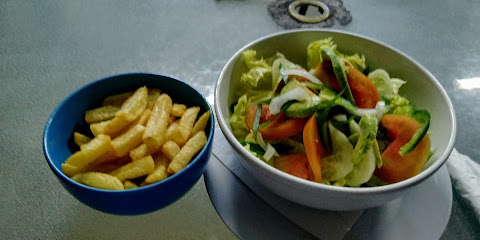
TOM EDWARD'S HOME
Discover authentic Papua New Guinean flavors at Tom Edward's Home in Ialibu – where every meal tells a story.

Markets, malls and hidden boutiques
Tininga Hagen Central
Discover the vibrant local culture and flavors at Tininga Hagen Central, the heart of grocery shopping in Mount Hagen.
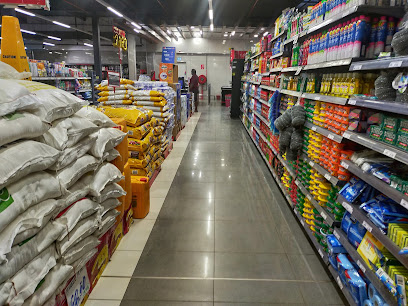
Mount Hagen Market
Discover the vibrant Mount Hagen Market, a cultural gem in Papua New Guinea's Highlands, offering fresh produce and local crafts in a lively atmosphere.
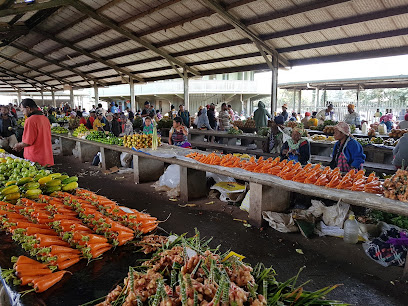
Tininga Best Buy
Explore Tininga Best Buy in Mount Hagen for a diverse selection of local and international products in a welcoming supermarket atmosphere.
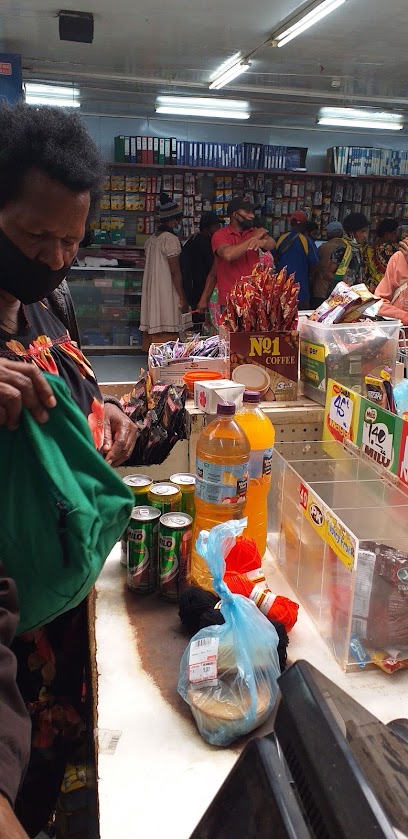
Hardware Haus
Explore Hardware Haus in Mount Hagen for all your DIY needs and a taste of local craftsmanship in Papua New Guinea.
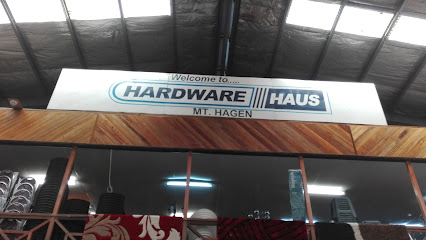
Dae Won Shopping Centre
Discover the heart of shopping and culture at Dae Won Shopping Centre in Mount Hagen, a vibrant destination for tourists and locals alike.
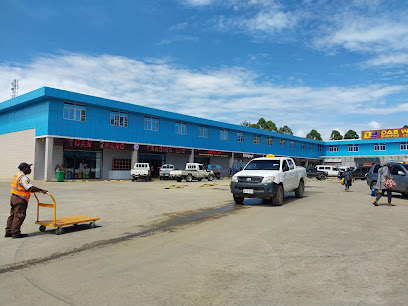
A2Z Hardware Limited
Discover quality tools and hardware supplies at A2Z Hardware Limited in Mount Hagen, your essential stop for DIY projects in the beautiful Western Highlands.
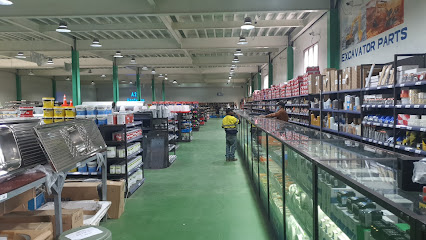
OSK Coffee shop
Experience the rich flavors and cozy atmosphere at OSK Coffee Shop in Mount Hagen, your perfect coffee retreat in the Western Highlands.
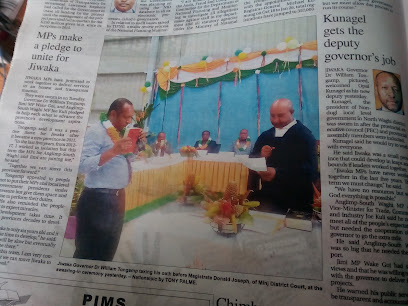
Apex Supermarket
Explore Mount Hagen through Apex Supermarket, where local culture and convenience meet for an unforgettable shopping experience.
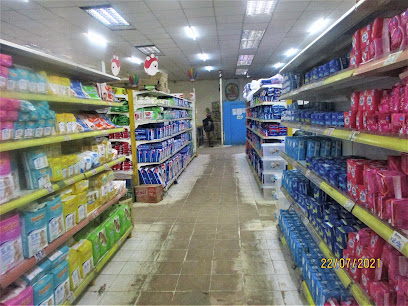
OSK Store
OSK Store in Mount Hagen: Explore local crafts, essential goods, and immerse yourself in the vibrant culture of Papua New Guinea.
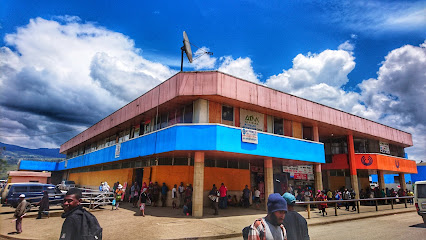
Jacks of PNG
Explore Jacks of PNG for unique workwear and casual clothing that capture the essence of Papua New Guinea's vibrant culture.
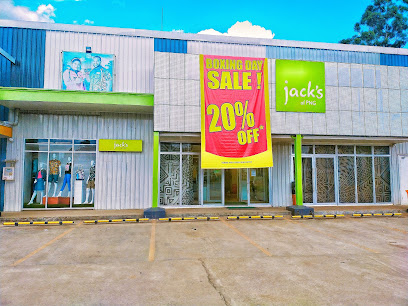
Kamnga Wurr Market
Discover the authentic culture and vibrant atmosphere of Kamnga Wurr Market in Mount Hagen, a must-visit shopping experience in Papua New Guinea.
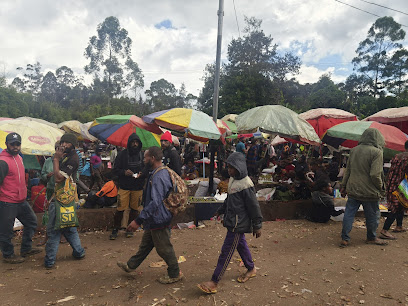
Hagen Coffee
Discover the rich flavors of Papua New Guinea at Hagen Coffee, a cozy spot in Mount Hagen for coffee lovers and cultural enthusiasts alike.
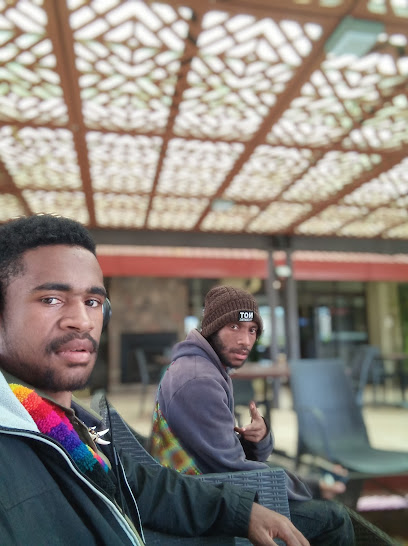
Dae Won Trading
Discover the heart of Mount Hagen at Dae Won Trading, where local culture meets convenience in a charming general store.
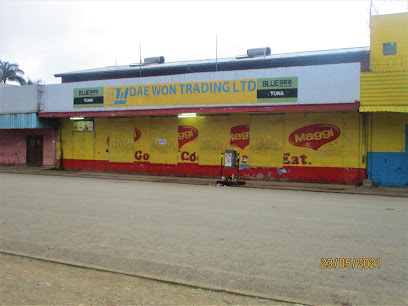
Top town Market
Experience the vibrant heart of Mt. Hagen at Top Town Market, where local culture, crafts, and culinary delights come together in a colorful gathering.
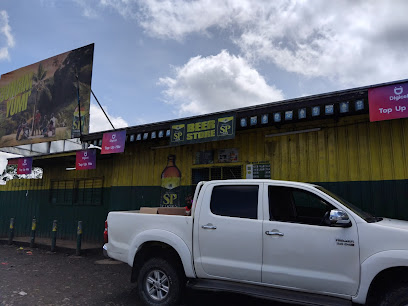
Daewon Shopping Center
Discover the cultural essence of Papua New Guinea at Daewon Shopping Center, a vibrant shopping destination in Mount Hagen.

Essential bars & hidden hideouts
Mount Hagen Market
Discover the vibrant local culture and fresh produce at Mount Hagen Market in Papua New Guinea's stunning Western Highlands.
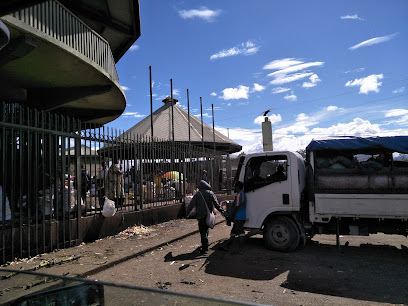
Rondon Ridge
Experience the breathtaking beauty of Rondon Ridge in the Western Highlands, where stunning views and modern comforts await every traveler.
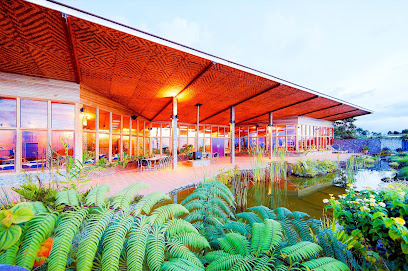
Hotel Kimininga
Experience the charm of Mount Hagen at Hotel Kimininga, a cozy hotel offering comfort, culture, and breathtaking nature in Papua New Guinea.

Highlander Hotel & Apartments
Discover comfort and local charm at Highlander Hotel & Apartments, your gateway to the stunning Western Highlands of Papua New Guinea.
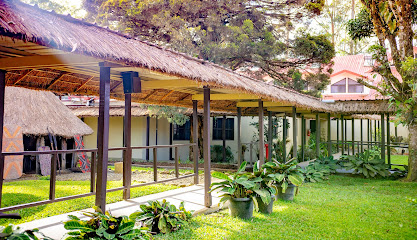
Chetty's Restaurant
Experience the rich flavors of Papua New Guinea at Chetty's Restaurant in Mount Hagen, where local ingredients meet warm hospitality.
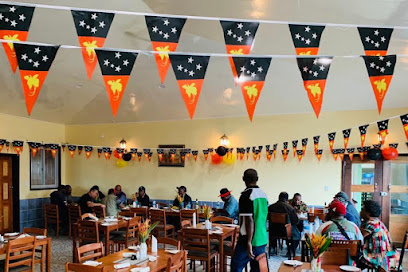
Signature Restaurant
Experience the delightful fusion of local and international cuisines at Signature Restaurant in Mount Hagen, a culinary gem in the heart of the Highlands.
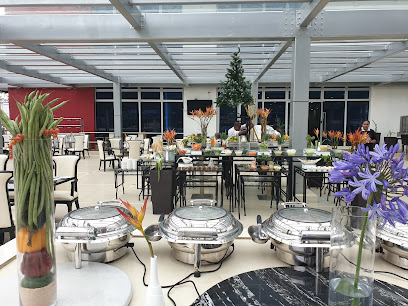
Travellers Point ( Banana Club)
Experience the vibrant nightlife at Travellers Point (Banana Club) in Jiwaka Province, where locals and travelers come together for unforgettable moments.

Mt Hagen Club
Discover the vibrant nightlife and local culture at Mt Hagen Club, a lively hotspot in the heart of Papua New Guinea's Western Highlands.
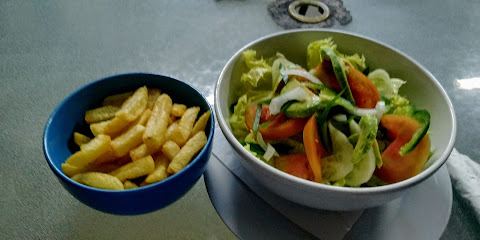
Mount Hagen
Experience the breathtaking landscapes and rich cultural heritage of Mount Hagen, a hidden gem in Papua New Guinea's Western Highlands.
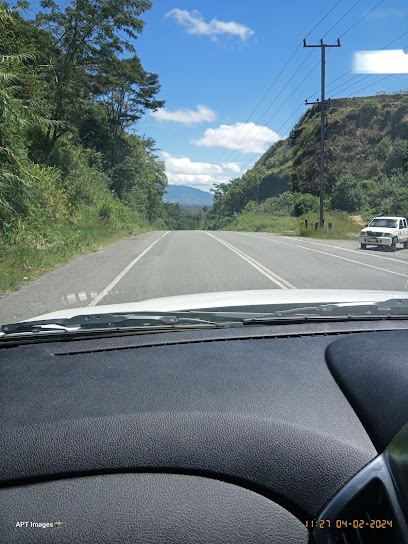
AliBarBar
Experience the vibrant nightlife of Mount Hagen at AliBarBar, where local culture meets refreshing drinks in a lively atmosphere.
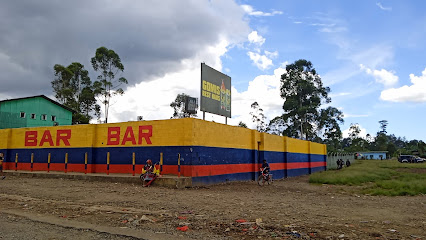
Legendry Food Bar
Discover the authentic tastes of Mount Hagen at Legendry Food Bar, where local flavors and vibrant culture come together.

Numing Bar
Experience Mount Hagen’s vibrant nightlife at Numing Bar, where local culture and refreshing drinks come together in a lively atmosphere.

JT Bakery and Kai Bar
Experience the unique blend of local and international flavors at JT Bakery and Kai Bar in Mount Hagen, a fast food haven in the heart of Western Highlands.

White House Tavern
Discover the scenic beauty and vibrant culture at White House Tavern, the ideal beer garden in Mount Hagen, Papua New Guinea.

Local Phrases
-
- HelloHalo
[ha-lo] - GoodbyeNogat
[no-gat] - YesYes
[yes] - NoNogat
[no-gat] - Please/You're welcomePlis
[plees] - Thank youTenkyu
[ten-kyu] - Excuse me/SorrySori
[so-ri] - How are you?Yu stap gut?
[yu stap gut] - Fine. And you?Gut. Na yu?
[gut. na yu] - Do you speak English?Yu save toktok long Inglish?
[yu save tok-tok long Ing-glish] - I don't understandMi no save long dispela
[mi no save long di-spe-la]
- HelloHalo
-
- I'd like to see the menu, pleaseMi laik lukim menu, plis
[mi like loo-kim me-nu, plees] - I don't eat meatMi no kaik kapul
[mi no kai kap-ul] - Cheers!Sampela hap
[sam-pe-la hap] - I would like to pay, pleaseMi laik baim, plis
[mi like baim, plees]
- I'd like to see the menu, pleaseMi laik lukim menu, plis
-
- Help!Help!
[help] - Go away!Go long hap!
[go long hap] - Call the Police!Kolim Polis!
[ko-lim po-lis] - Call a doctor!Kolim dokta!
[ko-lim dok-ta] - I'm lostMi lus
[mi lus] - I'm illMi sik
[mi sik]
- Help!Help!
-
- I'd like to buy...Mi laik baim...
[mi like baim] - I'm just lookingMi tasol lukim
[mi ta-sol loo-kim] - How much is it?Em i stap long han?
[em i stap long han] - That's too expensiveEm i moa liklik
[em i moa lik-lik] - Can you lower the price?Yu inap kisim daun pris?
[yu in-ap ki-sim down pris]
- I'd like to buy...Mi laik baim...
-
- What time is it?Em i wanem taim?
[em i wa-nem taim] - It's one o'clockEm i wan taim
[em i wan taim] - Half past (10)Long hap pastaim 10
[long hap pas-taim ten] - MorningMornin
[mor-nin] - AfternoonApinun
[a-pi-nun] - EveningEvenin
[e-ve-nin] - YesterdayI gat
[i gat] - TodayTede
[te-de] - TomorrowTomoro
[to-mo-ro] - 1Wan
[wan] - 2Tu
[tu] - 3Tri
[tri] - 4Fo
[fo] - 5Faiv
[faiv] - 6Sikis
[si-kis] - 7Seven
[sev-en] - 8Eit
[eit] - 9Nain
[nain] - 10Ten
[ten]
- What time is it?Em i wanem taim?
-
- Where's a/the...?Em i stap we?
[em i stap we] - What's the address?Em i stap long adres?
[em i stap long ad-res] - Can you show me (on the map)?Yu inap soim mi (long map)?
[yu in-ap soim mi long map] - When's the next (bus)?Nex taim (bas) bai kam?
[neks taim (bas) bai kam] - A ticket (to ....)Wan tiket long ...
[wan tik-et long ...]
- Where's a/the...?Em i stap we?
History of Mount Hagen
-
Mount Hagen has been home to indigenous tribes for thousands of years. The Melpa people are the primary inhabitants, known for their intricate social structures and unique traditions. These indigenous groups have lived in the fertile Wahgi Valley, cultivating sweet potatoes, taro, and other root crops, forming the backbone of their subsistence farming economy.
-
European explorers first made contact with the region in the early 1930s. Australian gold prospectors Mick Leahy and Michael Dwyer were among the first to explore the area, documenting their encounters with the native tribes. Their journeys were perilous and marked by significant cultural exchanges, which have been well-documented in their journals and photographs.
-
During World War II, the Highlands of Papua New Guinea, including Mount Hagen, were strategically important. The area served as a supply route and a staging ground for Allied forces. The presence of the military brought new infrastructure and exposure to the outside world, forever changing the socio-economic landscape of the region.
-
Papua New Guinea gained independence from Australia in 1975. Since then, Mount Hagen has developed into a significant urban center in the Highlands, known for its markets and bustling trade. The city has grown rapidly, becoming a melting pot of different cultures and traditions from across the Highlands.
-
One of the most famous cultural events in Papua New Guinea is the Mount Hagen Cultural Show, which started in 1961. The show was originally initiated by missionaries and local leaders to promote peace among the warring tribes. Today, it is an annual event that attracts tourists from around the world, showcasing traditional dances, music, and costumes, and celebrating the rich cultural heritage of the Highlands.
Mount Hagen Essentials
-
Mount Hagen is accessible primarily via Kagamuga Airport, located just outside the city. The airport has regular flights connecting to Port Moresby, the capital of Papua New Guinea. From Port Moresby, you can catch a domestic flight to Mount Hagen. Additionally, there are road connections from other provincial capitals, but these routes can be long and challenging due to the terrain and road conditions.
-
In Mount Hagen, public transportation options include PMVs (Public Motor Vehicles), which are mini-buses operating on fixed routes. Taxis are also available and are a preferred option for tourists. For those looking to explore the surrounding areas, renting a 4WD vehicle is advisable due to the rugged terrain. Always agree on a fare before starting the journey when using taxis or PMVs.
-
The official currency in Papua New Guinea is the Papua New Guinean Kina (PGK). While credit cards are accepted in some hotels and larger establishments, it is advisable to carry cash, especially when visiting local markets or smaller shops. ATMs are available in Mount Hagen, but it's wise to have some cash on hand as connectivity issues can sometimes affect ATM availability.
-
While Mount Hagen is generally safe for tourists, it is important to exercise caution. Avoid walking alone at night and be aware of your surroundings. Areas around the local markets and bus stops can be hotspots for petty crime like pickpocketing. It is advisable to travel in groups and avoid displaying valuable items openly. Always use reputable transportation services.
-
In case of emergency, dial 111 for police, fire, or medical assistance. Mount Hagen General Hospital is the primary medical facility in the area. It is recommended to have travel insurance that covers medical emergencies, including evacuation. For minor health issues, there are pharmacies in the town where you can buy over-the-counter medications.
-
Fashion: Do dress modestly. Avoid wearing revealing clothing, especially when visiting villages. Religion: Do respect local customs and traditions. Always ask for permission before taking photos of people or cultural sites. Public Transport: Do be respectful and patient when using PMVs. Don't argue with the driver or other passengers. Greetings: Do greet people warmly. Handshakes are common, but a smile and a nod are also appreciated. Eating & Drinking: Do try local foods and accept hospitality graciously. Don't refuse food or drink offered by locals, as it may be considered impolite.
-
To experience Mount Hagen like a local, visit the bustling Mount Hagen Market, where you can buy fresh produce and traditional crafts. Engage with the locals, who are generally friendly and willing to share insights about their culture. Don't miss the Mount Hagen Cultural Show, an annual event that showcases the vibrant traditional dances and customs of the highlands' tribes. For a unique adventure, consider hiking in the nearby Wahgi Valley, known for its stunning landscapes and coffee plantations.
Trending Landmark in Mount Hagen
-
Mount Hagen Market
-
Tininga Supermarket, Dobel
-
Mount Hagen (Kagamuga) Airport AYMH
-
McRoyal Hotel
-
Rondon Ridge
-
Hotel Kimininga
-
Highlander Hotel & Apartments
-
Able Home & Office PNG - Mount Hagen Branch
-
Mt Hagen Missionary Home
-
Amelia Earhart Memorial
-
MAF Papua New Guinea
-
Kumul Lodge
-
Mt Hagen Show Grounds
-
Magic Mountain Lodge
-
Kuk Swamp
Nearby Cities to Mount Hagen
-
Things To Do in Buka
-
Things To Do in Goroka
-
Things To Do in Madang
-
Things To Do in Wewak
-
Things To Do in Lae
-
Things To Do in Vanimo
-
Things To Do in Port Moresby
-
Things To Do in Kimbe
-
Things To Do in Kavieng
-
Things To Do in Alotau
-
Things To Do in Rabaul
-
Things To Do in Kokopo
-
Things To Do in Port Douglas
-
Things To Do in Cairns
-
Things To Do in Arawa







